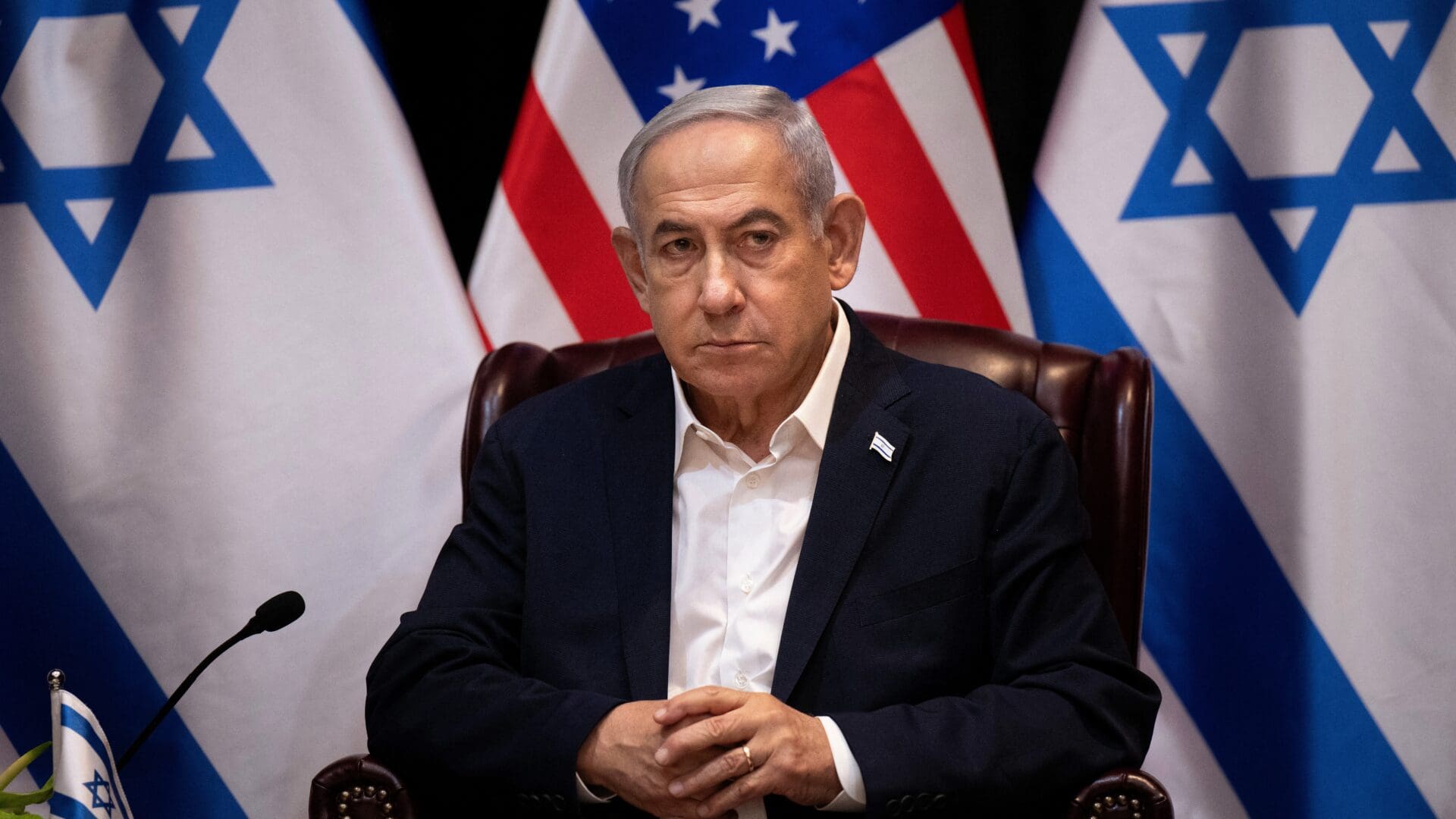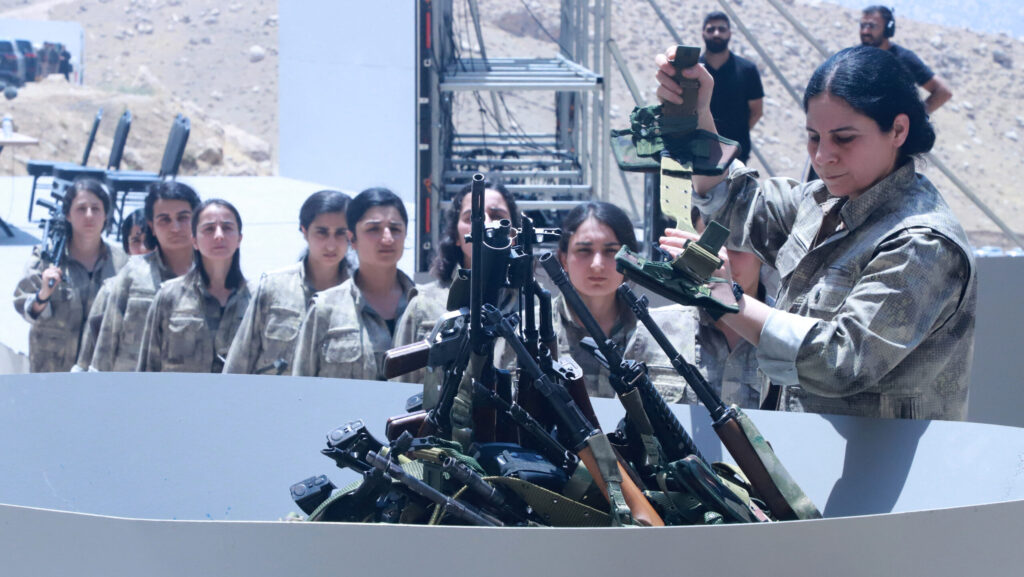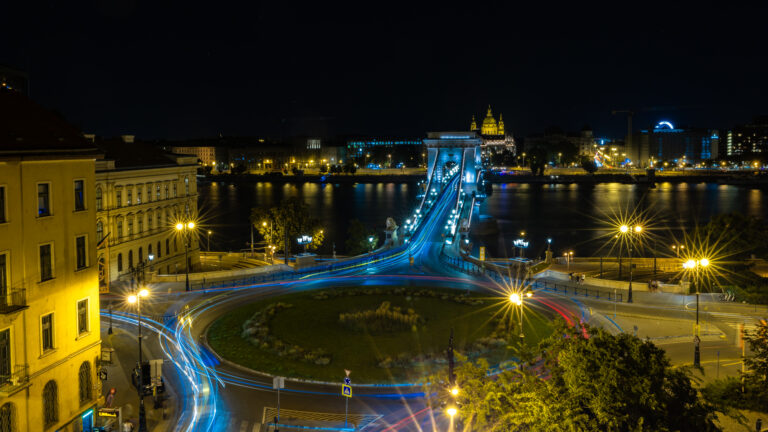In the 1930s, a Hungarian Zionist publication published a striking cartoon. On one side of the drawing, there was a fleeing, skinny Jewish woman and her child, with the word ‘galuth’ written underneath. Galuth is a Hebrew word meaning exile, or diaspora in a broader sense. On the other side there was a healthy, intact Jewish family, with the caption reading ‘Erets’ underneath. The word Erets refers to Israel, the homeland of the Jewish people, the Holy Land. The contradiction was clear: for the Jews, the Diaspora meant pogroms, persecution, while the independent Jewish homeland meant security. This statement may have been true in the 1930s, and Zionism has since then, among other things, represented for Diaspora Jews the hope that if they were ever persecuted again, Israel would protect and welcome them.
In October 2023, however, the Jewish state’s sense of security was severely shaken.
Israel suffered more casualties in one day than in the 1967 Six Day War, and this time, the vast majority of them were civilians. This time, the Jewish state was not attacked by the armies of three Arab states, but ‘only’ by a terrorist organization that has not been taken seriously in recent years. In fact, some analysts have even talked of an Israeli–Iranian conflict rather than an Israeli–Arab conflict. The attack hit Israel within its internationally recognized borders, and in some kibbutzim, civilians were left unprotected for twelve hours or more in the face of terrorists slaughtering them at will. As one survivor put it in an interview: ‘We have no state.’ For some survivors, the verdict is clear: the Israel Defence Force, considered one of the world’s leading military forces—not to mention law enforcement agencies, special units, and so on—abandoned the civilians.
The attack raises serious questions about Israel’s self-confidence and strength, but also about its identity. If nothing else, the average reader is informed about the Mossad and Shin Bet from the Fauda series: they are all-seeing and all-hearing. Yet, the infiltration of a thousand terrorists went unnoticed.
According to Israel’s Channel 12, there are ‘concrete’ indications that Israeli military and internal security leaders were informed at dawn on the day of the attack that a group of terrorists would attempt to infiltrate Israel, take control of one or two settlements, and attempt kidnappings. At 4 a.m. on 7 October, IDF Chief of General Staff Herzi Halevi and Shin Bet leader Ronen Bar, among others, reportedly met, but concluded that the matter could wait until morning and no alert was issued. All that was done was that Shin Bet sent a small operational team to the border area. The report is confirmed by the fact that Shin Bet lost an unusually high number of agents in the early hours of the battle.
It is also a fact that senior officials responsible for Israel’s security have in recent days taken personal responsibility for the failure, including Halevi, Bar, and Defence Minister Yoav Gallant. Reportedly, there were signs that Hamas was drilling for an attack in broad daylight, but Israel had ignored these preparations. Egyptian intelligence officials told Israeli newspapers that Israel had ignored repeated warnings that the Gaza terror group was planning ‘something big’. Israeli officials denied this of course, but who would like to admit that they were wrong?
It is difficult to understand how one of the most heavily guarded border crossings in the world can not only be breached by primitive means, but also be used to transport hostages in and out of kibbutzim for miles around, and not in armoured cars, but in golf carts. Israel has now mobilized, but the mobilization reportedly leaves much to be desired. At the time of writing this article, the IDF is patiently waiting at the Gaza border—or perhaps not so patiently.
IDF leaks indicate that the pointless stalling is having a bad effect on army morale.
There is a strong demand for accountability. According to polls, a significant part of Israeli society holds Benjamin Netanyahu and his government responsible, and not only on the left: 86 per cent of the population and 79 per cent of the supporters of the governing coalition believe that the government is responsible for what happened. Moreover, this unprecedented and tragic fiasco cannot be blamed on the pacifist left, as the current one is the most right-wing government in Israel’s history. So it is not only Israel’s security that is at stake here, but also Netanyahu’s political future.
Can Netanyahu’s career survive this tragedy? Netanyahu’s father was a historian—surely his son has contemplated Israel’s history as well. After the 1973 Yom Kippur War, when Israel was attacked by surprise by its Arab neighbours and 2,812 Israeli soldiers were killed (twice as many as in the current war), a national commission of inquiry was set up to investigate the failures of the IDF on the eve of the war. The commission looked at two main issues: intelligence in the days leading up to the war and the IDF’s operations to tackle the enemy. It did not examine the later stages of the war. In the spring of 1974, the report called for the dismissal of a number of senior IDF officers, and Prime Minister Golda Meir was eventually forced to resign. It’s worth recalling all this because, with a few names and dates changed, the story could be happening today.
Netanyahu has so far refused to accept responsibility, despite considerable pressure to do so.
The Prime Minister’s mantra is that his office was first informed of the attack shortly after it began. Dissatisfaction is also high on the right. The self-critical lines of the national–religious Israeli publicist David Ha’ivri describe the anger of the right-wing camp thus: ‘Today it is clear that those who were elected on empty promises, those who received control of all the means and resources of the state, chose to use them for other purposes, to the extent that they didn’t notice the real danger brewing for a long time under our nose. Unfortunately, it turns out that the same personalities who hold the most senior positions in the country still refuse to apologize. In retrospect, this alone exposes that they did not deserve any respect and power they were granted and that it was a mistake to trust them.’
In 1974, Golda Meir drew direct conclusions from the events. The big question is what will Netanyahu do, who has built his image—‘Mr. Security’—on the premise that as long as he is in office, things like this cannot happen. (Of course ‘things like this’ is a bad expression, as no one could have imagined that Hamas would act this barbarously. Perhaps this was Israel’s largest fault: a lack of imagination.)
Can his career as ‘Mr Security’ survive the worst terrorist attack ever? Do the news reports that are suggesting that the military leaders are to blame help Netanyahu or do they set the stage for his downfall? How will the self-image of the Israeli right and the concept of Israel’s defence be transformed in the aftermath? These are serious questions, but in the Middle East, the analyst must not dare make predictions for his own good. Another big question to be tackled:
has the time come when the countries of the Diaspora are clearly safer for Jews than Israel?
The founders of Zionism believed that in the Diaspora, Jews would be persecuted, but in a state of their own, their people would be safe. Some radical nationalists, such as Ze’ev Jabotinsky, added that Jews would only be safe if they had an ‘iron wall’ around them. Well, now there is an Israel, there is a nationalist–religious government, there is a Jewish army, and there is an ‘iron wall’—yet the massacre, the worst in numbers since the Holocaust, has taken place. From the safety of their homes, the Jews of the diaspora watched in horror all the terrible news. The failure is not the fault of the left, it is not the fault of pacifism. The question facing the Jewish state in October 2023 is: where to next, Israel, where to next, Zionism?
The views expressed by our guest authors are theirs and do not necessarily represent the views of Hungarian Conservative.








